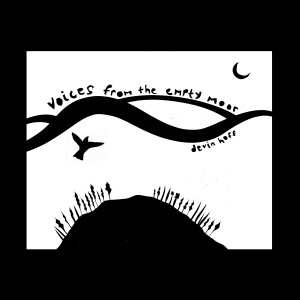 I only know a little about Anne Briggs, which means I know a lot more about her than most people. I’m a fan sort of around the edges of British folk music, which in my case means I know some of the music of Richard and Linda Thompson, Fairport Convention, the various Watersons and Carthys, Pentangle and its members, etc. All of them have high praise for Anne Briggs as a singer and recording artist. One of Richard Thompson’s best loved songs, “Beeswing,” was inspired in part by her life.
I only know a little about Anne Briggs, which means I know a lot more about her than most people. I’m a fan sort of around the edges of British folk music, which in my case means I know some of the music of Richard and Linda Thompson, Fairport Convention, the various Watersons and Carthys, Pentangle and its members, etc. All of them have high praise for Anne Briggs as a singer and recording artist. One of Richard Thompson’s best loved songs, “Beeswing,” was inspired in part by her life.
Briggs was a leading light of the 1960s English folk scene, a gifted songwriter and improviser, and as an amateur musicologist who revived traditional English, Scottish, and Irish Traveler songs which she sang with an unpretentious approach.
Devin Hoff is a modern fan of Briggs’s music, a bass player with an eclectic resumé. He has collaborated with a panoply of international musicians such as Yoko Ono, Amiri Baraka, Nels Cline, Vijay Iyer, Ben Goldberg, Ava Mendoza, Cibo Matto, Jewlia Eisenberg, and Carla Bozulich, and Mike Watt. He’s been studying Briggs’s music for more than a decade, transcribing, practicing, arranging and performing songs from her limited recorded output. Voices From the Empty Moor is the result of that work, an album that mixes his solo and multi-tracked bass with musicians and singers from a variety of backgrounds. Together they interpret these ancient songs with dramatic and haunting results.
The beautiful arrangement of “Go Your Way” featuring Sharon Van Etten was one of the singles released in advance of the album. The video is odd, but the performance of both Hoff and Van Etten is sublime. “ ‘Go Your Way’ is the Anne Briggs song that I first fell in love with, and I think I am not alone in that,” Hoff says. “There is an enigmatic beauty in the melody that highlights the sadness of the lyrics, yet seems to offer a counter-narrative at the same time. … Maybe there is something beautiful in being left behind, yet having the capacity to hope that at least the one who left is finding joy in their own freedom? Sometimes allowing for that autonomy is the best we can do for one another.”
Also released as a single was “Let No Man Steal Your Thyme,” one of the better known of these chestnuts, which Briggs performed a capella. Hoff plays what can be described as a bass choir behind the ghostly vocals of Julia Holter, an L.A.-based singer songwriter who performs art pop and ambient music. Hoff says he sees it as a “proto-feminist warning,” a fair assessment. “The melody of this song is timeless, and unfortunately the message is as well.”
Interspersed with the songs are several instrumental tracks. It’s little surprise that one of them, the tune set “The Snow It Melts the Soonest/My Bonny Boy,” is emerging as my favorite. On these two tunes Hoff accompanies Alejandro “Alex” Farha on oud, the warmly expressive Middle Eastern lute. Farha, who is of Arabic heritage, was born to Venezuelan and Colombian parents and raised in Miami. He now teaches music in Chicago and appeared in the national touring company of The Band’s Visit.
The program opens with a deeply atmospheric, mournful rendition of “She Moved Through The Fair,” on which Hoff is mostly unaccompanied on bowed bass, although he double tracks a second deep drone for the second half of the tune. That’s followed by a brief sketch of the very Scottish-sounding “The Lowlands” on bowed bass with an occasional plucked note double tracked. And on “Maa Bonny Lad” Hoff plays melody for the first couple of verses of this lament on bowed bass with deep drones provided by two more bowed basses, and for the rest of the song, soulful Bay Area saxophonist Howard Wiley takes the lead on his deeply expressive tenor.
Another highlight is “Living By The Water,” a beautiful straightforward arrangement featuring up and coming L.A. based singer songwriter Shannon Lay. Her understated approach to this song gives it a deceptive power.
The program is rounded out with one more song and another instrumental. California singer and musician Emmett Kelly lends his warm vocals (reminiscent of Bert Jansch’s) to “Blackwater Side,” which has one of the busier arrangements – Hoff plucks a complex pizzicato pattern in the foreground, backed by two more tracks of bowed bass, one droning, the other playing short runs. The finale “Willie O’ Winsbury” is the only one with percussion and guitar. Hoff leads with the melody on plucked bass, accompanied by himself on electric rhythm guitar and the understated drums of Australian Jim White.
Although I love double bass and other deep instruments, sometimes I have to stretch a bit to find it compelling enough to fill a whole album. No such problems with Devin Hoff’s Voices From the Empty Moor. The songs of Anne Briggs are perfect for the somber colors and textures of the multilayered bass arrangements, and Hoff has found the appropriate voices and players to bring these songs and tunes fully to life. If you’re looking for a new disc of atmospheric autumnal music, this is it.
(Kill Rock Stars, 2021)
